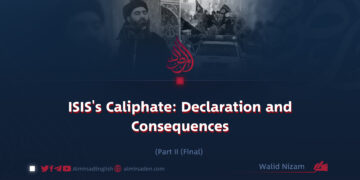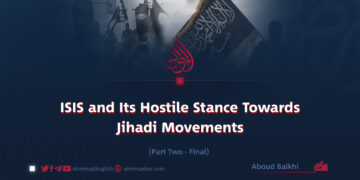Author: Khalil Abid
Throughout Islamic history, the Messenger of Allah (PBUH) warned the Ummah about the emergence of a deviant group known as the Khawarij. Numerous authentic ahadith describe their characteristics, predict their rise, and caution the Muslims against their dangerous ideology and actions. These prophetic descriptions have proven to be accurate time and again—especially in our era with the emergence of the Daeshi Khawarij.
Their ideology, conduct, and violence against Muslims mirror precisely what the Messenger of Allah (PBUH) described over fourteen centuries ago.
One such hadith is narrated by Abu Sa’id al-Khudri (RA):
“While we were sitting with the Messenger of Allah (PBUH) as he was distributing the spoils of war, a man named Dhu al-Khuwaysira from the tribe of Banu Tamim approached and said, ‘O Messenger of Allah! Be just!’ The Prophet (PBUH) replied, ‘Woe to you! Who would be just if I am not?’ Umar ibn al-Khattab (may Allah be pleased with him) said, ‘O Messenger of Allah! Allow me to strike his neck!’ But the Prophet (PBUH) responded, ‘Leave him. He will have companions whose prayer will make your prayer seem insignificant, and whose fasting will make your fasting seem insignificant. They will recite the Qur’an, but it will not go beyond their throats. They will pass through the religion like an arrow passes through its target. They will kill the Muslims and leave the idolaters. By Allah, if I live to see them, I would surely kill them as the people of ‘Ad were killed.'”
(Sahih al-Bukhari, Hadith No. 3610; Sahih Muslim, Hadith No. 1064)
This hadith outlines the defining features of the Khawarij—excessive outward religiosity, superficial understanding of Islam, and violence directed at Muslims rather than disbelievers. The Daeshi Khawarij exemplify these traits with disturbing precision.
These extremists have inflicted tremendous harm upon the Muslim Ummah under the guise of religiosity and jihad. As foretold by the Prophet (PBUH), “They will kill the Muslims and spare the idolaters.” Indeed, wherever ISIS has surfaced, their first targets have been Muslims, Mujahideen, and Islamic movements—while the disbelievers and occupiers remained untouched.
Their primary targets have consistently been Muslims and Mujahideen. In Iraq and Syria, they waged war against Al-Qaeda. In Afghanistan, they openly opposed the IEA and launched ruthless attacks against its Mujahideen. Across various African nations, they formed fronts against Al-Qaeda affiliates and assassinated veteran jihadist leaders—those whom global enemies had spent years hunting without success. Anyone who refused to pledge allegiance to them was declared an apostate and targeted.
Despite their aggression toward Muslims, Daeshi Khawarij never raised arms against the disbelievers in their midst. They neither challenged nor harmed them—because, in reality, they were proxies serving the agendas of these disbelievers. Far from confronting foreign occupiers, they acted to safeguard the interests of the enemies of Islam, particularly those of Israel.
Everywhere they operated, they worked to suppress movements and figures that posed a threat to Israeli interests. Their military actions consistently weakened those resisting Zionist influence, while they never took a single meaningful step against Israel itself. On the contrary, some of their recent media content and rhetoric openly align with pro-Israel narratives, confirming their role as tools in the hands of Islam’s adversaries.
It is now evident that ISIS is not a movement for Islam, but a fitnah against it—a modern-day embodiment of the Khawarij. Their betrayal of the Ummah, alliance with disbelievers, and relentless bloodshed among Muslims leave no ambiguity about their identity or intentions.
Our stance on the Khawarij is unambiguous and firmly grounded in Islamic Shari’ah and Prophetic guidance: They are the enemies of Islam, the allies of its foes, and the greatest internal threat to Muslim unity in our time.



















































